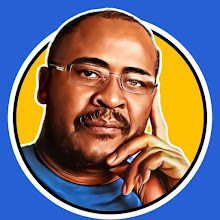 |
| First President of Zimbabwe Canaan Banana & First President SA Nelson Mandela |
Before I turned 40 I never imagined I would ever be passionate about Zimbabwean politics the way I am now until I started engaging Zimbabwe from diverse backgrounds in 2008.
My life before that was centred around spending my free time socialising with South African middle class and grass-roots families. I was basically just one of those working professionals who was inspired by American Black celebs like 2Pac, Snoop Dogg, Dre Dre and the Luther Vandros, TP, Monica & MJB's with a touch of Kwaito and South African Jazz artist.
Zimbabwe politics is like a drug addiction, it's hard to pull out once you have immersed yourself and understand the deep challenges faced by Zimbabweans.
Though in the back of my mind I have been building up enough courage to enter active politics before the end of 2016, my experience working with a small group of Zimbabweans is making me have doubts about my intentions to commit my time and resources in a more aggressive and visible manner on the ground.
I have no doubts that the individuals I have been working with all want whats best for Zimbabwe but it is discipline in terms of time management and ability to effectively accomplish our agreed objectives that has been the greatest concern and nightmare. I appreciate that some of the challenges that we have all faced are influenced largely by resource availability and at times the lack of basic services in Zimbabwe and Southern Africa in general.
As for my engagement with technocrats and professionals in the business sector, many have beautiful sounding ideas but are reluctant to bee seen in a position that may be viewed as going against the status quo, as it is viewed as biting the hand that feeds you..so the popular question has been 'what is in it for me?' or a straight forward request like 'I want the Mines portfolio'. That for me means most go into politics for the wrong reasons and if that is the kind of mentality one will come across in all political entities then we have a very serious problem in our hands.
 |
| Shamiso Children's Home Marondera |
Our generation focusses a lot on 'self' than the 'collective' and we are failing to transform some of their great ideas and our own to practical visible outcomes. I do not have all the answers but are playing my part when ever the opportunity presents its self to do so.
There many others in a far better position than I am trying to play their part I have great respect form them, whilst there are some abusing their position and influence to pursue the 'self' interests that I highlighted earlier thats reducing opportunities for a much broader sections of society.
Are we doing enough as individuals and a collective to challenge what can be described as a corrupted norm in our socio-economic and political environments?


